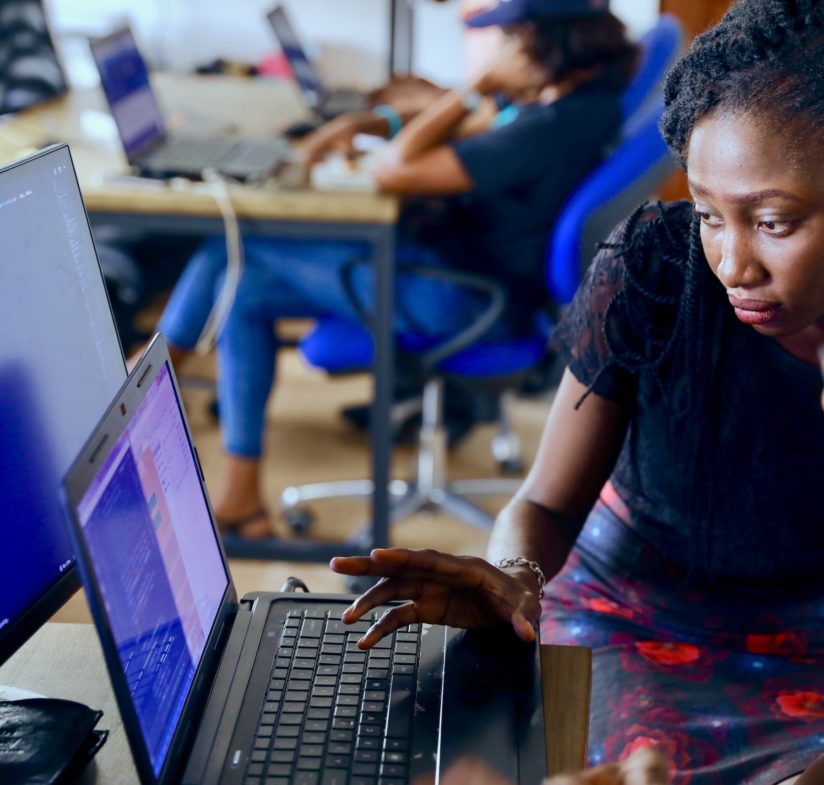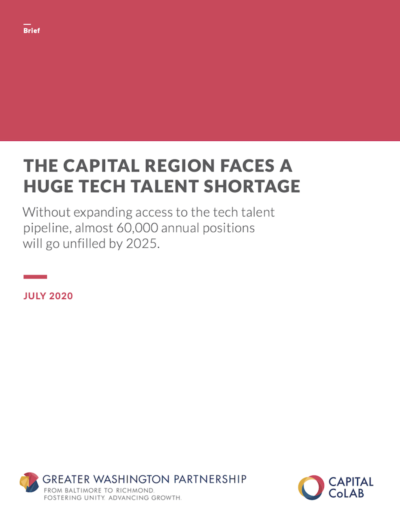The Capital Region Faces a Huge Tech Talent Shortage
Publish Date: July 2020

 Download Report »
Download Report »
Access to the opportunities that enable skills development and lifelong career mobility is too often limited to the populations that can afford it in terms of cost, time, or both. Uncertainties around the economic and public health impacts of COVID-19 compound these inequities.
The Capital Region (defined as the metro areas of Baltimore, MD; Washington, DC; and Richmond, VA) is the nation’s second largest tech hub. The region’s unique mix of industries—including the federal government, defense, healthcare, IT, and professional services—offers ample opportunities for workers with in-demand skillsets to both specialize and apply their knowledge across different fields. However, access to the opportunities that enable skills development and lifelong career mobility is too often limited to the populations that can afford it in terms of cost, time, or both. Uncertainties around the economic and public health impacts of COVID-19 compound these inequities. Workforce system stakeholders not only need clarity on high-demand jobs and skills that offer a family sustaining wage, the capacity constraints that educators face in preparing learners for those roles, and barriers that keep learners from accessing relevant training and jobs; they need data to support decision making around those activities. These types of analyses, while often available at the local or state level, do not always capture the regional nature of the labor market—one that, at least in the Capital Region, crosses multiple county and state boundaries.
Recognizing the geographic and economic mobility that many tech jobs provide, Greater Washington Partnership’s Capital CoLAB partnered with McKinsey & Co. on a tech talent market diagnostic of the Capital Region. The goals of the analysis were to refresh CoLAB’s definition of tech talent, use that definition to assess the supply-demand gap of the regional workforce between now and 2025, and identify implications that will guide CoLAB programs in their focus on building digital literacy through an equity lens.